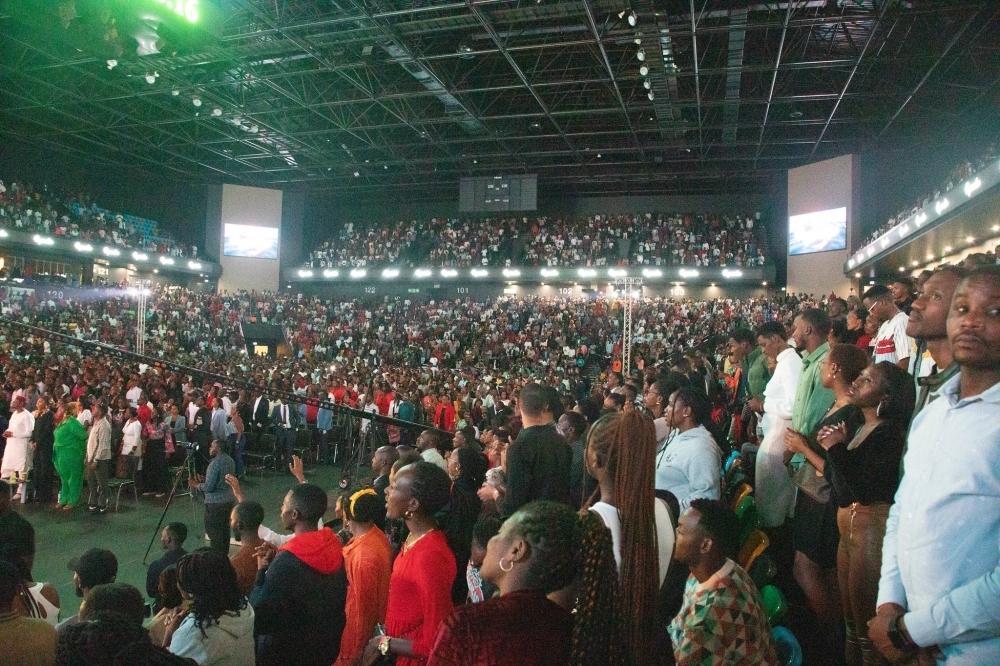Portia Zuba Uwase
Africa-Press – Rwanda. My 20s have been characterised by a constant struggle between passion and ambivalence towards concepts I once held dear, especially religion, particularly Christianity.
Previously, I viewed religion as beyond critique, a supernatural phenomenon separate from its devotees’ actions. However, as I spent more time in the church, I realised that the pursuit of perfection I was encouraged to seek was an elusive dream that made me resentful.
This ideal of perfection made me more unforgiving of the cruelty and intolerance I witnessed, leading me to blame religion for these negative aspects.
Consequently, I decided to take two classes about religion to unpack my complex feelings towards it. These classes proved to be triggering as they forced me to confront my discomfort with religious institutions, which contradicted the fear of damnation instilled in me by the church whenever I questioned these institutions.
Questioning beliefs that have shaped my life since age 15 was daunting, but during those classes, I gradually divorced myself from religious panic to critically analyse religion.
One concept that emerged from my studies, particularly in Religious Violence Studies (RV Studies), is RV Maximalism. RV Maximalism, as described by scholar Paul Powers, refers to the tendency in academia to claim that religion is inherently violent.
While this perspective may not accurately portray religion’s inherent predisposition to violence, there are strong arguments regarding the consistent, positive relationship between religion and violence.
Hector Avalos argues that much human violence is caused by competition for scarce resources, whether material or symbolic. This idea is explored extensively in the Bible, with examples like the competition between Jacob and Esau.
Jacob’s deceitful acquisition of Esau’s birthright, which included inheritance and prestige, illustrates how individuals in the Bible often competed for desirable and empowering resources.
Many biblical examples reflect unequal power dynamics justified, almost encouraged by religion, particularly concerning resource ownership.
However, it is essential to hold religion accountable for the violence committed in its name without blaming all the world’s violence on religion. That is where RV Minimalism scholarship comes in because it emphasises that the evidence of religion being inherently violent is inconclusive.
Scholar William Cavanaugh argues that the division of ideologies and institutions into religious and secular categories is arbitrary and incoherent. Often, religious and secular motives for causing violence are intertwined, as observed in the historical union of political and religious institutions worldwide.
For instance, in Thailand, Buddhism is entwined with the state’s power, even though the military, whose motives and intentions can’t always be determined to be non-violent, represents a departure from Buddhist principles.
The state’s use of Buddhism to maintain legitimacy and power demonstrates how religion and secular institutions can work together in complex ways.
As a Rwandan, I have also pondered why religious figures participated in colonisation, abductions, and committed the genocide against the Tutsi, even though these actions contradicted their teachings.
While it’s tempting to blame religion for this violence, it’s essential to recognise that factors like industrialisation in Europe, the scramble for and partition of Africa, world wars, economic instability, and white supremacy also played significant roles. Thus, not all violence can be attributed solely to religious motivations.
Cavanaugh’s work encourages us to view religion as a malleable social construct rather than an inherent feature of human society. This perspective allows us to deconstruct categories like religion and examine why some, such as religion, are vilified more than others, like nationalism.
One good example is the construction of “Hinduism” as a religion, to establish unequal power relations between the coloniser and the colonised.
As described in the lines, “If, under British rule, Hinduism was a religion, to be Indian was to be private and to be British was to be public.”
This demonstrates that before Britain invaded India, Hinduism was, and in many ways still is, embedded in every aspect of Indian life and was not reduced to a religious category.
Furthermore, Cavanaugh demonstrates that the U.S. government has used the “myth of religious violence” to establish itself as the guardian of democracy and secular values by waging war on Muslim countries believed to have religious, irrational, violent conflicts.
Additionally, this “myth of religious violence” allows countries like the U.S. to avoid taking accountability for how their foreign policies have exacerbated existing conflicts in Muslim countries.
In conclusion, my journey has led me to the realisation that there have been times when I, as a Christian, felt silenced, not because I was particularly harmful, but because religion was being analysed in a vacuum and unfairly demonised.
I have also become less sensitive to criticism against any religion, recognizing that religion has often instigated violence, especially against marginalised groups, due to its fixation on scarcity and an “us versus them” dynamic.
It is crucial to divest from the idea that religion is inherently violent, as this viewpoint is lazy and dishonest, with real-life consequences, especially for Muslims who are disproportionately affected by accusations of religious violence.
If religion is a human construct, it can be revised and reinterpreted to foster understanding, tolerance, and peace in a diverse world.
The writer is a Communications and Advocacy professional with a keen interest in arts, culture, and society.
Source: The New Times
For More News And Analysis About Rwanda Follow Africa-Press






